Oppression of Tunisian political dissidents: opposition leader sentenced to three years in prison
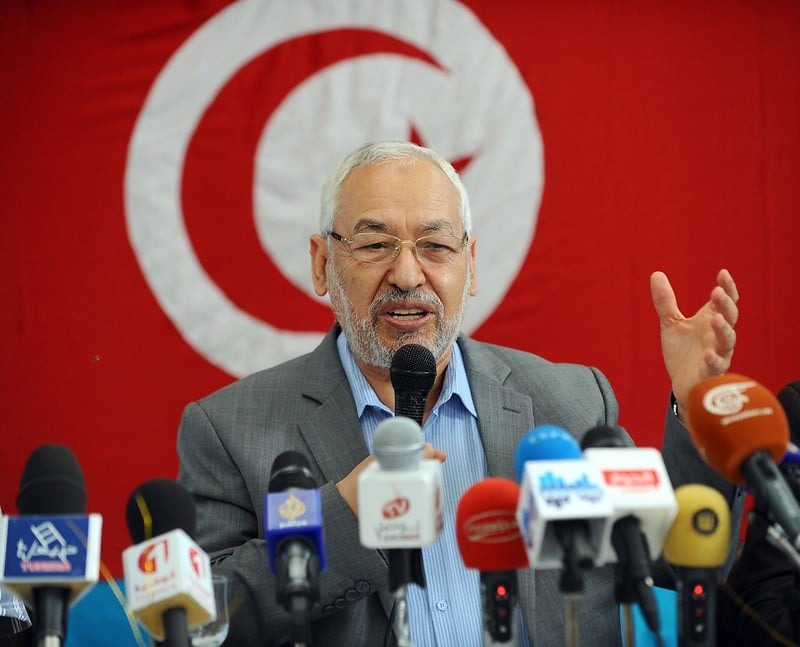
Photo: Rached Ghannouchi, leader of the Ennahda party - Flickr On 31 January, Tunisian opposition leader Rached Ghannouci was sentenced to three years in prison. Ghannouci, who is 82, is the leader of Tunisia's largest opposition party, the Ennahda Party. Ghannouci received this sentence over allegations that Ennahda received illegal foreign contributions. The [...]
10 years after Lampedusa: a history that need not be repeated
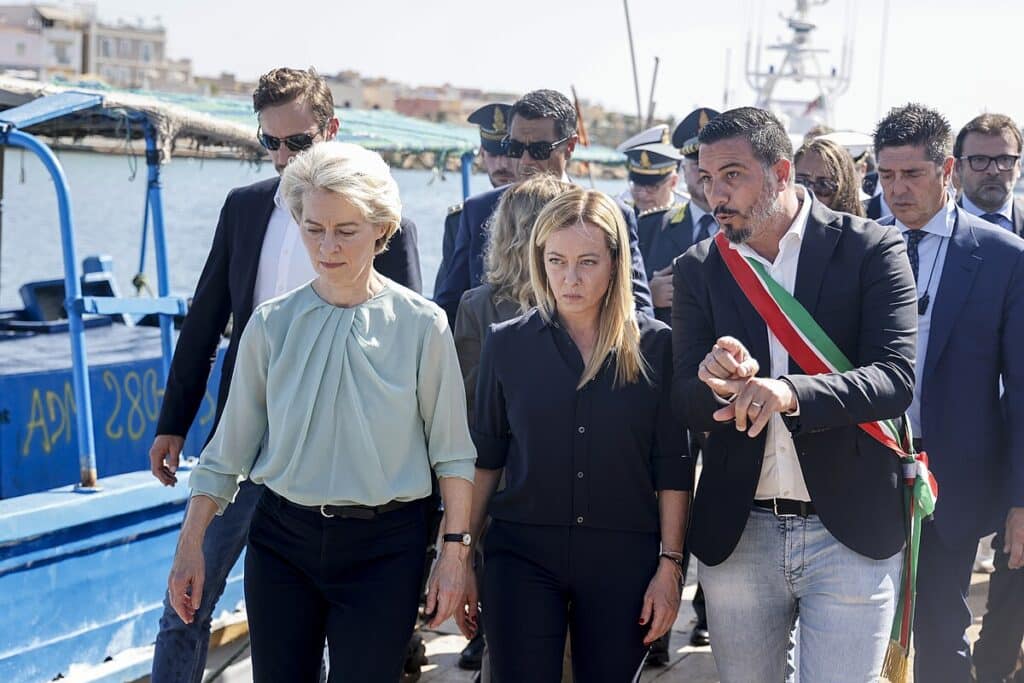
Ten years ago, two terrible shipwrecks occurred off the island of Lampedusa. At least 368 refugees died during the first shipwreck on 3 October. Just eight days later, during a second disaster, at least 268 more refugees, including 60 children, drowned. The high death toll is not only explained by the [...]
Tunisia continues deadly mass expulsion of Black immigrants as EU deal is implemented
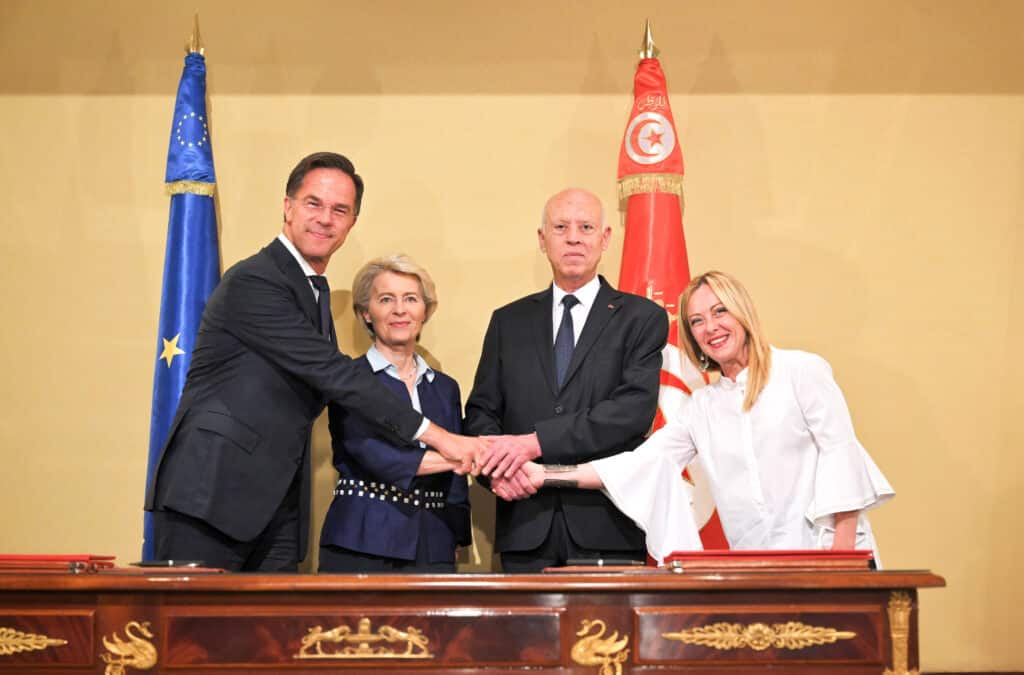
Photo: European Commission On 16 July 2023, the EU signed a migration deal with Tunisia, as announced a month earlier. The deal includes an aid package worth more than €1 billion, designed to support the Tunisian economy and strengthen Tunisian border control, with the aim of reducing the number of refugees entering Europe [...]
How do we do deal with migration?
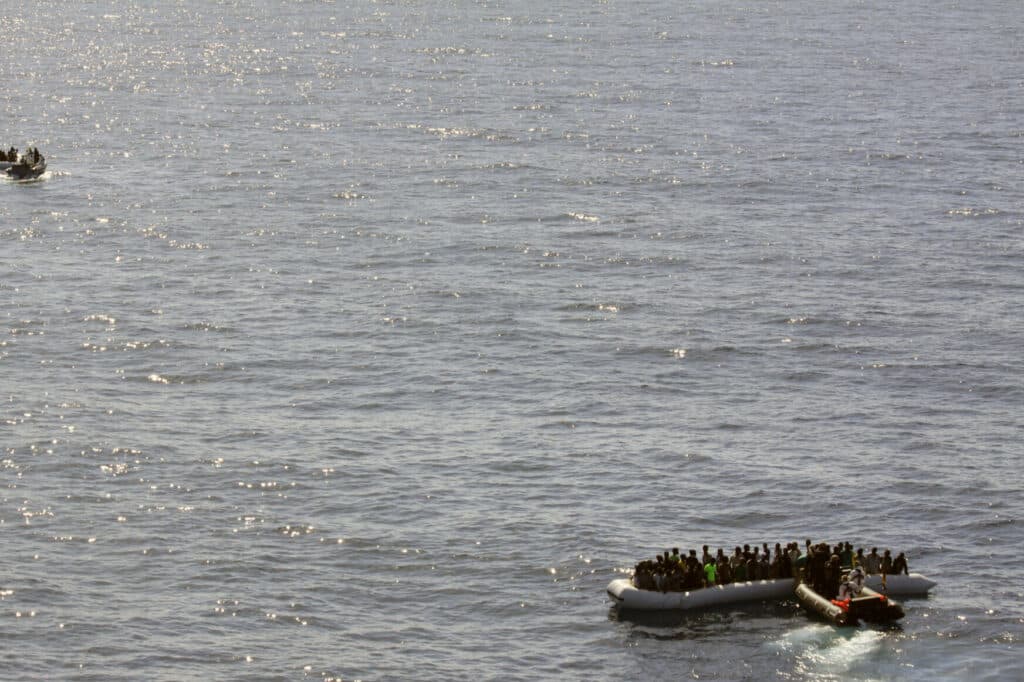
The shipwreck off the Greek coast that killed hundreds of people last week is the deadliest accident in the Mediterranean in years. This is yet another maritime disaster as a result of European migration policies. For instance, many illegal pushbacks of migrants take place by the European border agency FRONTEX and by southern European countries themselves. [...]
Tunisia receives EU financial support to tackle migration
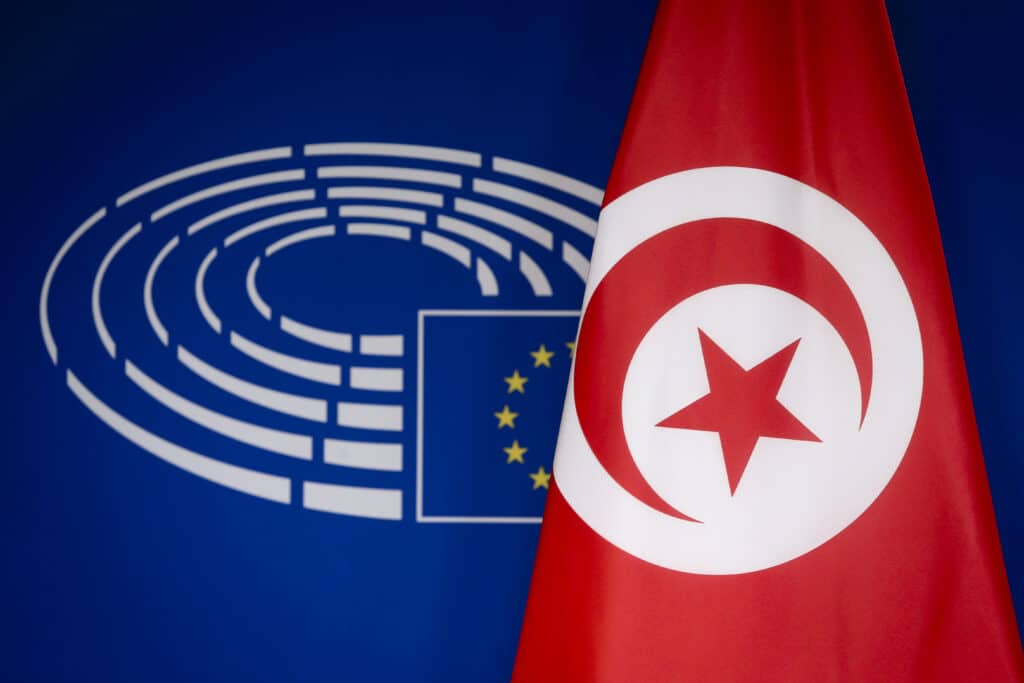
Source: Martin Schulz The European Union is considering giving Tunisia around €900 million to support its economy in exchange for better border control and measures against human trafficking. Ursula von der Leyen, head of the European Commission, said €150 million in budget support will be provided immediately once the necessary agreement is reached. Prime Minister [...]
Tunisian democracy in grave danger after crackdown on critics
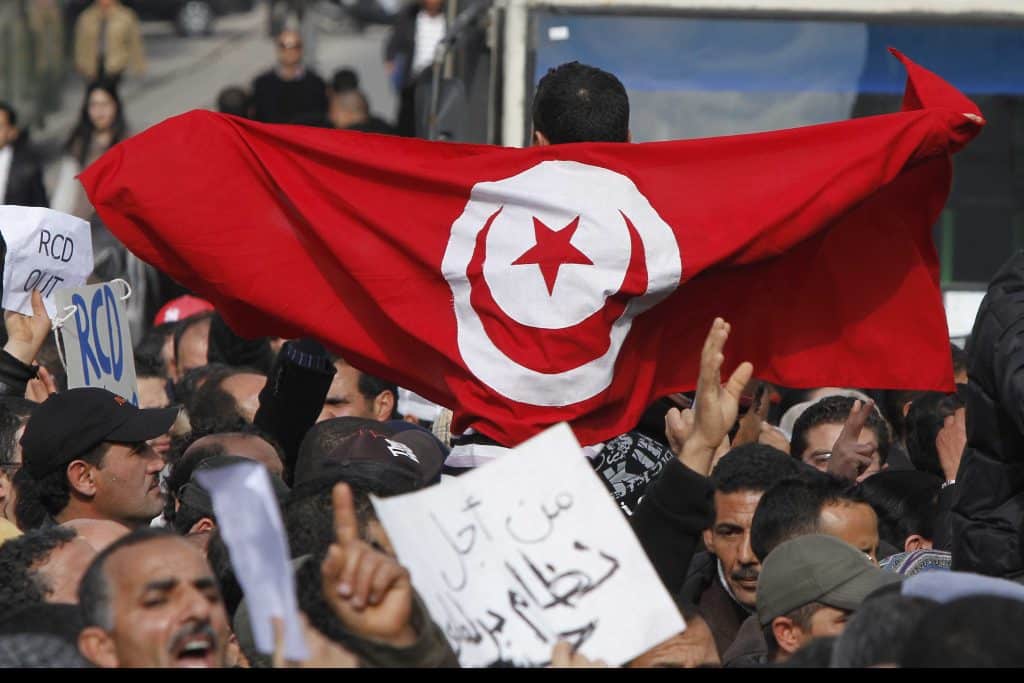
Protests in Tunis, Tunisia 2011: Flickr President Kais Saied's regime in Tunisia has hit a new low with a crackdown on critics. Dozens of public figures, including politicians, protest organisers, lawyers, judges, trade union officials, the head of an independent radio station and business leaders, were arrested in often violent night raids. This led to protests in [...]
Background to Tunisia's bizarre elections with a nine per cent turnout
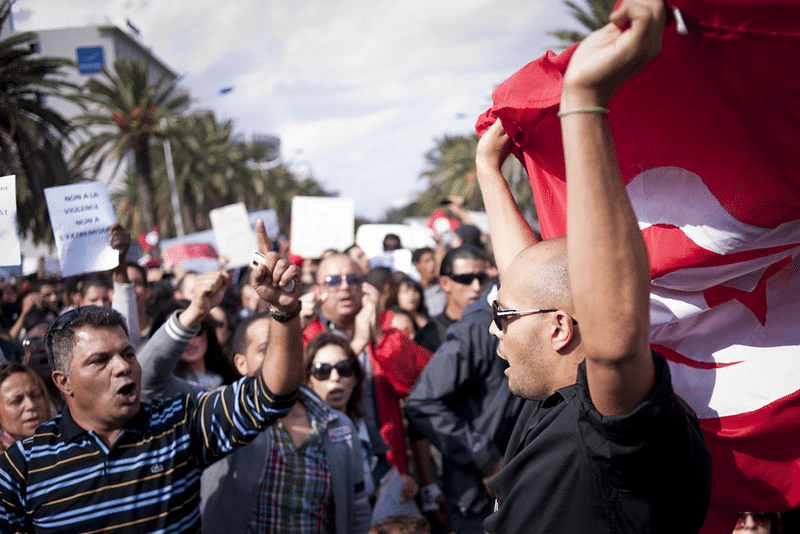
Last Saturday, Tunisia went to the polls for the first time since the outbreak of a deep political crisis between President Kais Saied and the Assembly of Representatives (Majlis Nuwwab ash-Sha'b), Tunisia's parliament, a year and a half ago. The outcome of the election was shocking but not entirely surprising. Only just under nine per cent of the electorate [...]
Vacancy Junior project manager MENA region (28 hours)
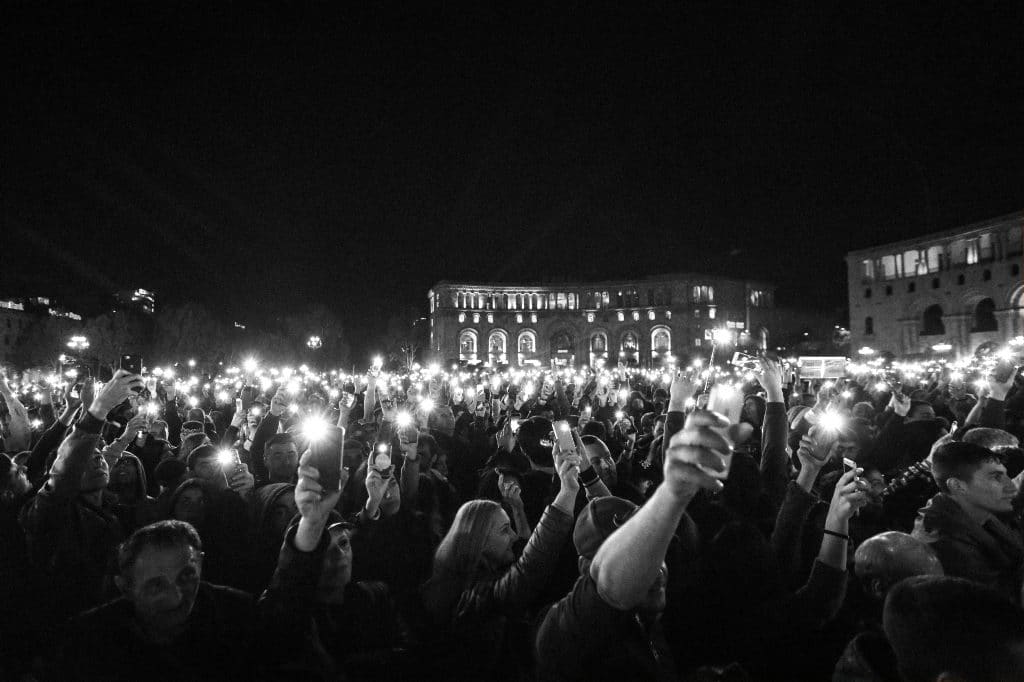
Vacancy junior project manager MENA region (28 hours). Please respond by 2 January 2022 at the latest.
Two months after parliament was suspended, Tunisian democracy rattles on all sides
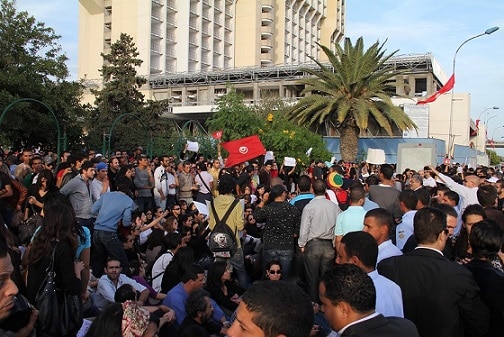
On 25 July in Tunisia, the president dissolved parliament and dismissed the prime minister. Now, two months later, there is still no parliament or prime minister. Tunisian democracy is under increasing tension. Meanwhile, protests have broken out in the capital Tunis against the seizure of power and criticism from abroad is growing. Despite the growing criticism, President Kais Saied seems unwilling to rebuild the old system with a new prime minister and parliament, and is maintaining a state of emergency. Critics say this is the beginning of an autocratic system, and the end of Tunisia's fledgling democracy.
Political paralysis in Tunisia
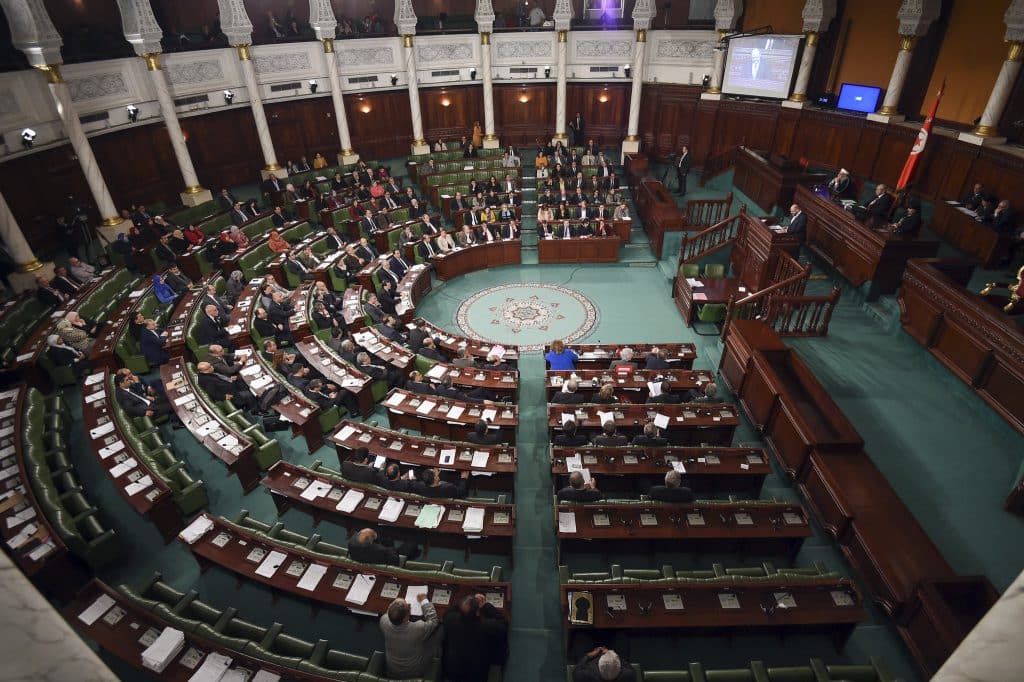
It is not the first time, and probably not the last. Tunisia is politically paralysed. The current stalemate between the president and the prime minister continues without an independent referee to give a decisive answer. Meanwhile, a fragmented and politicised parliament is causing confidence in politics to fall, young people in particular are turning away and voters are flocking to the flanks. What will it take to move the country forward again?
